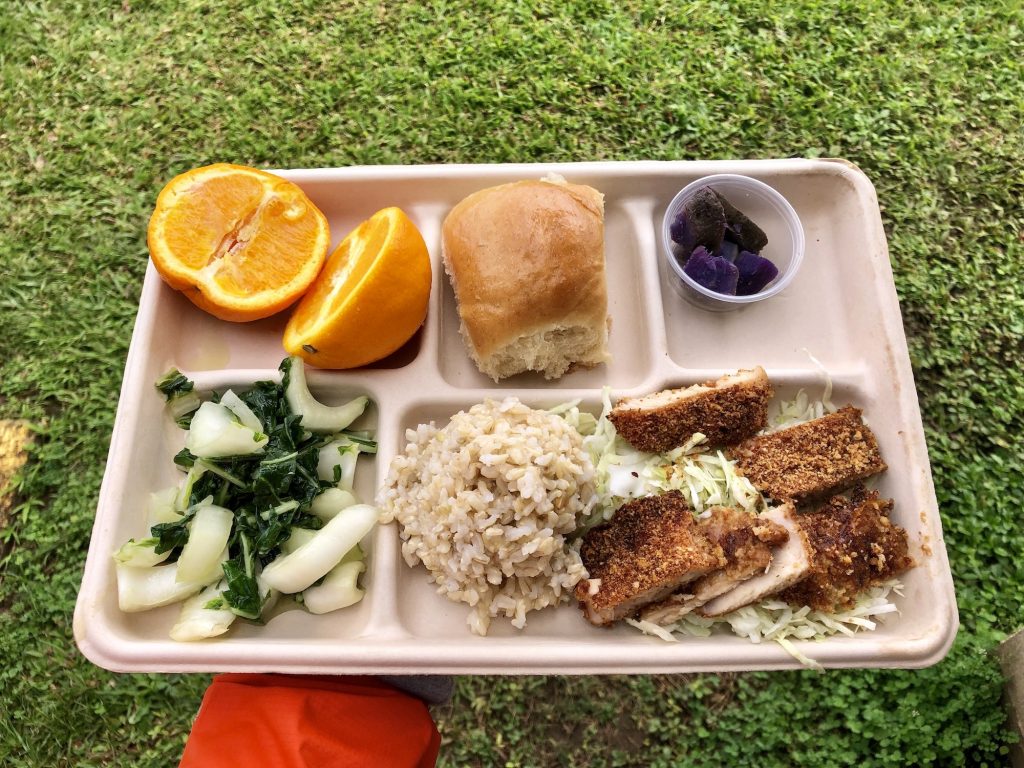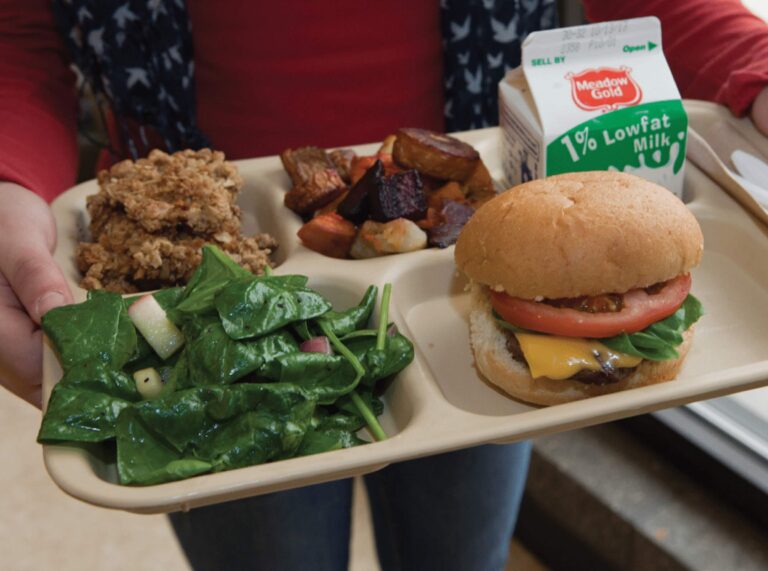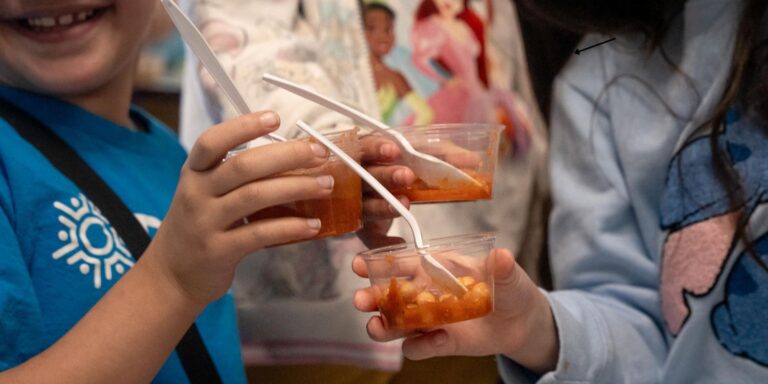Our Take on New USDA Proposed Changes to School Meals
In January, the USDA proposed some changes to school meal rules that could undermine kids’ health. Here’s where we stand on the proposal.
Join our corps! Applications for 2026-2027 are now open. Apply by March 30.
In January, the USDA proposed some changes to school meal rules that could undermine kids’ health. Here’s where we stand on the proposal.

In January, the USDA proposed some changes to school meal rules that could undermine kids’ health. As with any regulatory changes, the public has the opportunity to weigh in before the public comment period ends on April 22. Here’s our take.
With almost 30 million kids across the country eating school meals every day, school food is a massive, complex operation. School meals are also a great opportunity to teach kids about healthy food and help them learn to love it.
But keeping that size and scale in mind, try to imagine creating a national set of science-based nutrition standards that prioritizes kids’ health, responds to the needs of school nutrition professionals who implement those standards under tight budgets, and competes with our national “fast food” culture. It’s a real challenge!
At FoodCorps, kids’ health is our top priority, and the goal that ultimately drives our policy work. A recent USDA study found that the 2012 update to the school nutrition standards resulted in the healthfulness of school lunches improving from a score of 58 to 81 (out of a max of 100). And school meal participation was highest in schools that had the healthiest meals.
So when the USDA proposed a set of changes to school nutrition standards in January, we knew it was important to take time to hear directly from some of our school nutrition partners and other stakeholders to learn how these changes would impact their operations and the kids they serve.
What we heard was a thoughtful and nuanced reaction to the proposed changes. We considered that feedback carefully, while also thinking through the potential impact on kids’ health, to determine our final position. While the proposed changes in the rule touch on many aspects of school meals, our response focuses on the proposals that impact what shows up on the tray. Here’s where we landed:
We oppose the following aspects of the proposal:
Because we know that school breakfasts can be overly sugary, we support the following proposals related to school breakfast with additional qualifications:
We support the proposal to allow:
Throughout the USDA’s proposal, the agency often cites food waste as an issue to justify their proposed changes. Yet the USDA’s own data demonstrate that food waste did not increase as a result of the 2012 changes in nutrition standards. That said, we know that food waste is still an issue that needs to be addressed. Rather than changing nutrition standards, we urge the USDA to pursue and invest in strategies we know will help get kids to eat their meals and reduce food waste.
For example, we know that strong, hands-on food and nutrition education can drive healthy behavior changes and greater consumption of healthy food. Similarly, farm-to-school practices, including school gardens, can also get kids excited about eating healthier food. Lastly, plate waste can result from kids not having adequate time to eat. Kids often have short lunch periods that do not provide sufficient time to get to the cafeteria, pick up their meal, sit down, and eat their food while trying to socialize and connect with their peers. Strategies to streamline lunch service and lengthen the lunch period could help here, too.
We know that running school meals is a complicated and difficult operation, yet we also know that we must do what is best for our kids’ health. We value the fantastic, often unsung work schools do to connect more than 30 million kids to meals every school day. We must do all we can to support schools with the resources they need to make the meals on the tray as healthy as possible, and to get kids excited about eating those meals.
The USDA is accepting public comments on this proposal until April 22, and the agency is required to consider the feedback it receives before issuing a final rule. Take one minute to submit your comment and urge the USDA to prioritize kids’ health!

3 Reasons We Need School Meals for All

Mindful Tasting: Eating with All 5 Senses

Our 2025 Child Nutrition Policy Year in Review